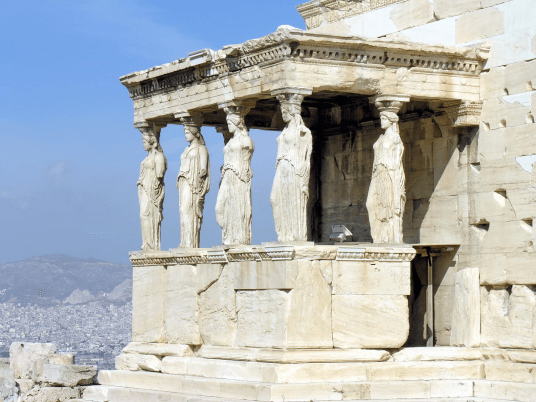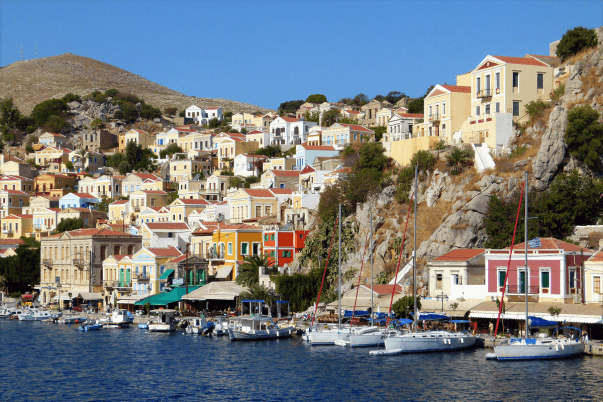Greek people
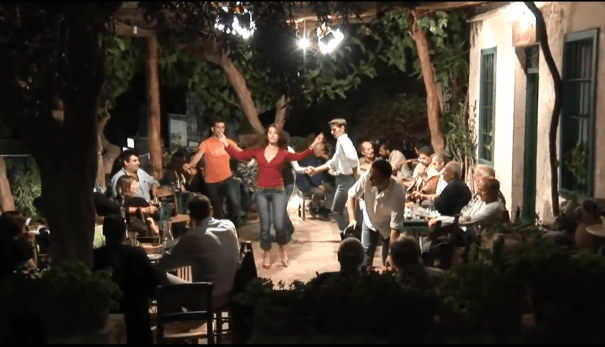 Looking at the morphology of the country where the Greek people live, it is apparent that all of its features are in human scale. The mountains are high but it isn’t hard to hike them, the rivers are impetuous but very pleasant for rafting, the seas are many but not daunting to sail them, the trees are of medium height and they are easily exploitable, the winters are not very cold and the summer heat is tempered by special winds, the aqueous part of the territory to the whole is in proportion to the water that human body has, many Greeks have been recognized as eminent world-class personalities but the character of the Greeks was and remains unassuming. And of course Greece wouldn’t be the same without the Greek people.
Looking at the morphology of the country where the Greek people live, it is apparent that all of its features are in human scale. The mountains are high but it isn’t hard to hike them, the rivers are impetuous but very pleasant for rafting, the seas are many but not daunting to sail them, the trees are of medium height and they are easily exploitable, the winters are not very cold and the summer heat is tempered by special winds, the aqueous part of the territory to the whole is in proportion to the water that human body has, many Greeks have been recognized as eminent world-class personalities but the character of the Greeks was and remains unassuming. And of course Greece wouldn’t be the same without the Greek people.
Greek traditions
The mountainous and island character of the country was rescuing Greeks from death and enslavement during periods where the defense of whichever Greek state (under any denomination existed) was collapsed under waves of invaders which at times nearly wiped out those inhabitants of the lowlands which were unable to take refuge at the highlands in time.
At the mountainous and the islands where people struggled for a living through centuries of deprivation, they were able to fully uphold their Greek traditions even in long periods of foreign occupation. At the very mountainous in particular as well in certain islands the Greeks did not experience ever foreign suzerainty.
In the last form of the Greek State, which is the one that exists today, the difficult access of island and mountain regions where the majority of the population lived, especially up to the 2nd World War, prevented the erosion of Greek traditions and contributed so that the manners, the customs, the way of expression and the way of living to remain unaltered from the very distant past.
Greek festival
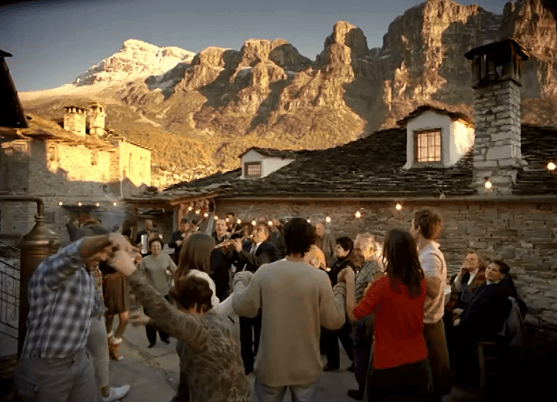 There are many Greek festivals and feasts that are spread throughout the year that give the opportunity to happen folk celebrations at regular intervals. In almost all of such happenings, the celebration includes traditional music and dances in the squares of the villages where visitors are always welcome to join in.
There are many Greek festivals and feasts that are spread throughout the year that give the opportunity to happen folk celebrations at regular intervals. In almost all of such happenings, the celebration includes traditional music and dances in the squares of the villages where visitors are always welcome to join in.
The Greek Orthodox Christian fests are held in the same manner for two millennia and many customs associated with them are even older. Other fests are rooted in immemorial customs and the way of celebrating, the rites, and the dances do not differ from those of the ancient times. An exception is the carnival festival where the way it is conducted in the big cities is similar to the festivals of Latin America, however in the small towns of province and especially in the villages this festival is a trip back in time and actually quite beyond the classical era.
Greek festivals are held in most places where important war events of Greek history of the past two centuries occurred, related to the struggle for national independence and the establishment of the new Greek State, and those festivals are particularly spectacular.
In addition to the above traditional feasts there are also Greek festivals of local character held in many areas that are not rooted in any religious or deeper national tradition but are more for the sake of celebration on the occasion of a rural theme such as wine production or catching sardines or simply the preparation of a traditional easily made delicacy like pancakes and fritters.
Moreover, Greek festivals of international character take place such as the International Film Festival of Thessaloniki and several other musical or theatrical festivals where artists of the international scene participate also.
Greek culture
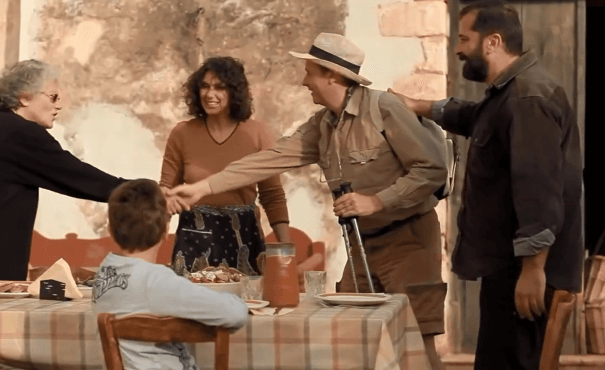 High social values of Greek culture remain the institution of the family and the respect for the elders while the gathering of the wider family in lunch usually on Sunday noon in a home or out to a restaurant is something usual. As Greeks are extremely sociable they can easily invite to their table the foreign visitors to whom earlier had given lift or those to whom they joyfully gave earlier abundant information on what to do and where to go in their area.
High social values of Greek culture remain the institution of the family and the respect for the elders while the gathering of the wider family in lunch usually on Sunday noon in a home or out to a restaurant is something usual. As Greeks are extremely sociable they can easily invite to their table the foreign visitors to whom earlier had given lift or those to whom they joyfully gave earlier abundant information on what to do and where to go in their area.
A special element of timeless Greek culture is the development of a series of tasty and very healthy recipes that are the most unpretentious and authentic representative of what UNESCO in 2013 added to the Intangible Cultural Heritage of Humanity with the name Mediterranean Diet.
The Greeks seem to convey often some complaint especially for politicians and the public system, but despite the deep scars the hardships have let on them throughout their long history, the Greeks remain spontaneous, studious, optimists, idealists, with zest for life, and above all hospitable. Without doubt the unprompted hospitality towards visitors is an inherent tradition of Greek culture, infused so to say into the Greek soul, held unchanged since immemorial times. The kind of hospitality that is uniquely Greek.
Further reading:

